MSPs back the minister's amendment on the definition of community justice.published at 14:21 GMT 11 February 2016
MSPs back the minister's amendment on the definition of community justice.
99 MSPs backed amendment 3 and 10 MSPs voted against it.
PLEASE SCROLL DOWN FOR FULL TEXT COVERAGE
The Standards Committee assessed Labour MSP Mary Fee's proposal to change the Standing Orders of the parliament
The reported shortage of GPs in rural areas, the EU Referendum and the Scottish government's climate change budget were raised during general questions
Nicola Sturgeon was quizzed by opposition MSPs during first minister's questions
SNP MSP Graeme Dey led a member’s debate highlighting the importance of local newspapers
MSPs debated the Community Justice (Scotland) Bill for the final time, before voting on it at decision time
They then debated the Burial and Cremation (Scotland) Bill, which was introduced in response to the baby ashes scandal
The Scottish government led a debate on the Scottish Rate Resolution, setting the Scottish rate of income tax for tax year 2016-17 at 10%
Craig Hutchison and Colin Bell
MSPs back the minister's amendment on the definition of community justice.
99 MSPs backed amendment 3 and 10 MSPs voted against it.
MSPs agree amendment one and two.
However on amendment three, on the definition of community justice, the Conservative say they object to it and we have a five minute suspension.
Under the proposals set out in the Bill, the eight CJAs would be abolished, with the current arrangements for community justice being replaced by a model involving:
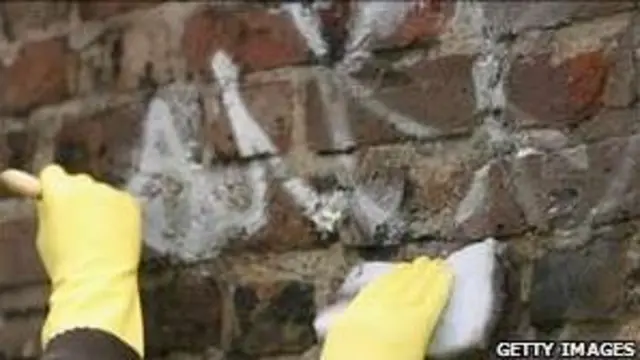 Image source, Getty Images
Image source, Getty ImagesConservative MSP Margaret Mitchell lists organisations who are concerned that prevention and early intervention were not included in the definition of community justice.
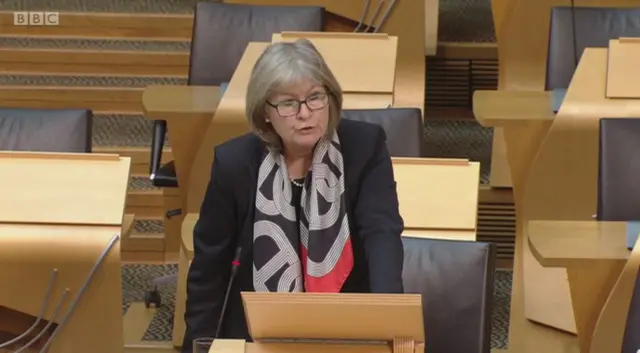
Ms Mitchell says it is a retrograde step and an opportunity lost that prevention and early intervention have not been included in the bill, says the minister.
She says she will oppose the Scottish government amendments.
The Community Justice (Scotland) Bill, external seeks to establish new arrangements for the delivery and oversight of community justice.
The Scottish government is aiming to fully implement the reforms by 1 April 2017.
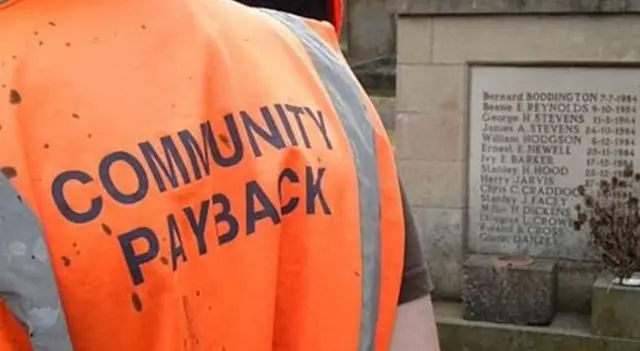
Under the current arrangements, established by the Management of Offenders etc (Scotland) Act 2005, Scotland’s 32 local authorities are covered by eight community justice authorities (CJAs).
They were set up with the aim of improving joint working and reducing reoffending.
However, reports published by Audit Scotland and the Commission on Women Offenders highlighted a number of concerns about the CJA-based model for community justice.
Community Safety Minister Paul Wheelhouse speaks to his amendments which further refine the meaning of community justice.
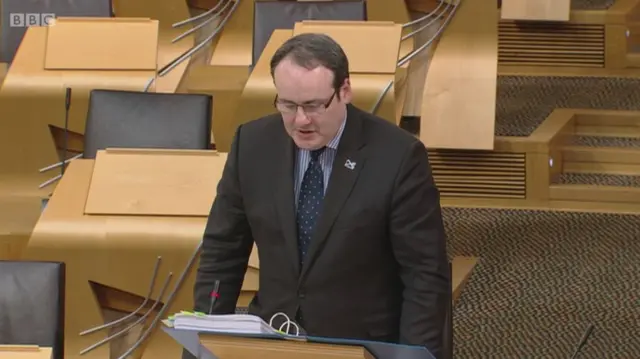
Mr Wheelhouse says the approach must be person centred.
Under the provisions of the Community Justice Bill, the current model for community justice based on eight community justice authorities would be replaced by one including:
Welcome back to Holyrood Live's coverage of the Scottish Parliament on 11 February 2016.
MSPs will now debate and vote on the final amendments to the Community Justice (Scotland) Bill, external.
That's lunch we're back early at 2pm, with the final debate on the Community Justice (Scotland) Bill for the final time.
They will then debate the Burial and Cremation (Scotland) Bill for the first time.
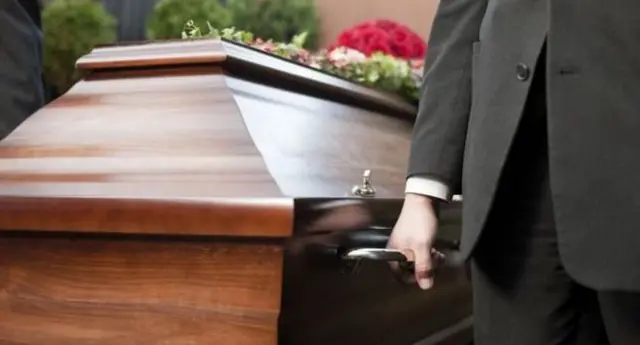
This legislation was introduced in response to the baby ashes scandal.
The Scottish government will then lead a debate on the Scottish Rate Resolution setting the SCRIT at 10%.
 Image source, bbc
Image source, bbcMSPs will debate the Scottish Rate of Income Tax rate at 5.30pm
The minister says a number of communities, titles and staff have been upset by the labeling of sub-core.
He says it would be a real shame if youngsters know everything about Kim Kardashian but not what is going on in their own community.
Mr Yousaf says young journalists benefit through training and local businesses benefit from their presence.
The minister says "the decision by Johnston Press is deeply worrying", especially as local newspapers keep politicians to account.
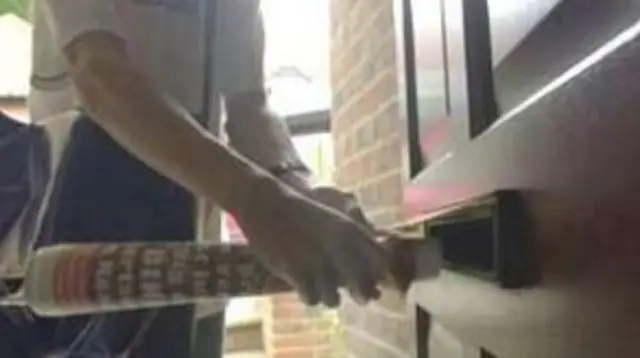
He says while he does not always agree with what is written, the papers are vital for a vibrant democracy.
The minister accepts Johnston Press has to face up to the economic realities.
Europe and International Development Minister Humza Yousaf says the future of local newspapers is a hugely important issue.
Mr Yousaf says the Scottish government is hugely supportive of local newspapers.
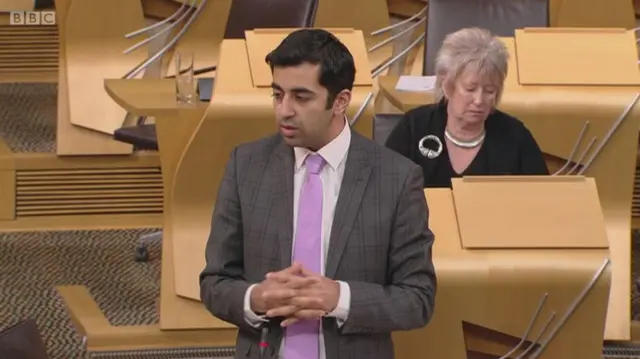
He says often good news gets a platform in local papers that you don't often see in the nationals.
The minister says local papers often give local campaigns a real boost and they pick up stories missed elsewhere.
SNP MSP Christine Grahame says local papers are essential as the contain detail such as controversial planning decisions, school and road information.
Ms Grahame says they are knowledgeable about the local community and bring local justice to the fore.
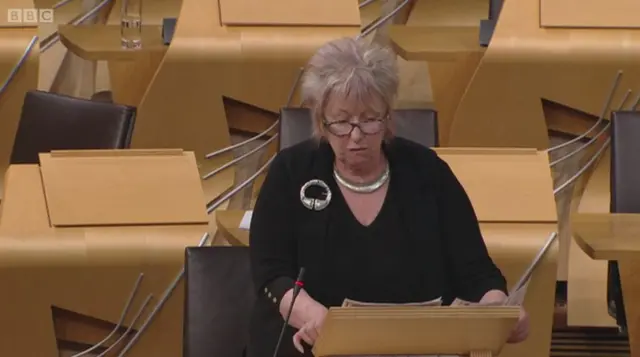
The SNP MSP says local newspapers are not as vulnerable as nationals in terms of spending time really covering stories.
"They are vital to democracy", she says.
Ms Grahame says we will all be using the local newspapers in the coming weeks and they will cover political issues generally without any bias.
Conservative MSP Jamie McGrigor says he strongly agrees that local newspapers are valuable to constituents and communities, but they are of course vital for politicians.
Mr McGrigor, referring to politicians having their picture taken, asks: "Where would we be without them?"
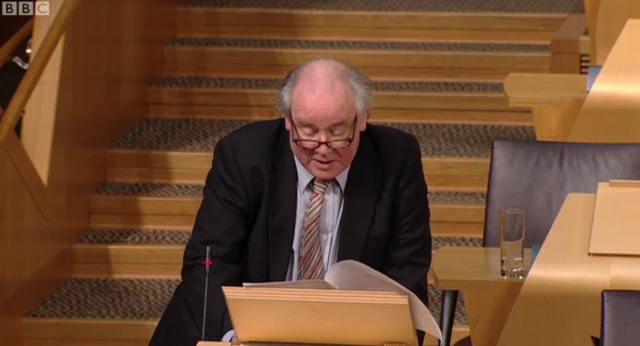 Image source, bbc
Image source, bbcConservative MSP Jamie McGrigor
He highlights the importance of the training local newspapers provide for young journalists.
The Tory MSP praises the Oban Times which he says reaches the Scottish Diaspora and the award winning Strathspey and Badenoch Herald, among other titles.
Johnston Press has confirmed it is in advanced talks to buy the cut-price national daily newspaper - the i - for about £24m.
Johnston, which owns The Scotsman and more than 200 other titles, said the deal would create the UK's fourth largest print publisher with more than 600,000 paid copies a day.
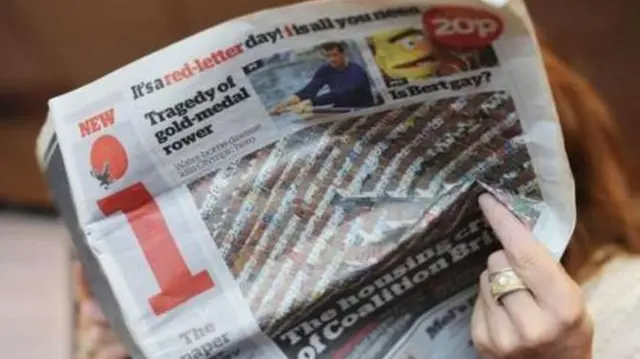
The i was launched in 2010 with a cover price of 20p
The i newspaper is part of the group that publishes The Independent.
It is controlled by Russian tycoon Alexander Lebedev and his son Evgeny.
SNP MSP Joan McAlpine says she is an employee of the Daily Record and formerly worked for the Johnston Press as a columnist.
Ms McAlpine says she worked as a journalist for the Carluke Gaxette and the Greenock Telegraph.
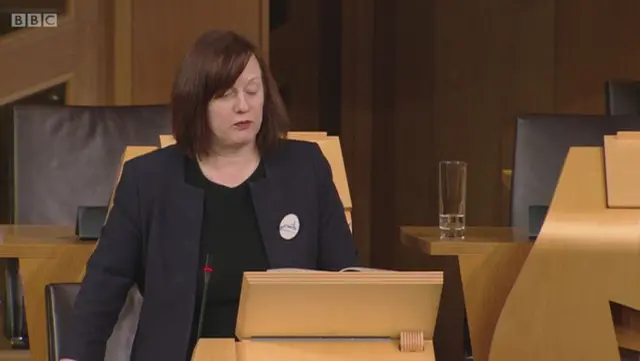
The SNP MSP says many of the subjects discussed in the parliament begin life as a story in a local newspaper.
Ms McAlpine says she supports local newspapers by advertising surgeries and vacancies.
Labour MSP Claire Baker says local newspapers are integral to the communities they serve.
Ms Baker says many of the local publications in her area have decreased in size and there is duplication across titles.
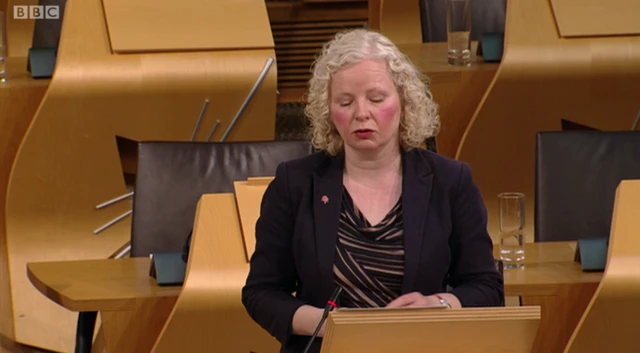 Image source, bbc
Image source, bbcLabour MSP Claire Baker
The Mid-Scotland and Fife MSP praises the campaigns of the East Fife Mail.
Communities would be poorer without the titles that have served them for years, she says.
SNP MSP George Adam says it is concerning to see Johnston Press looking at the existence of their titles.
Mr Adam says it is these titles that scrutinise what is going on in local authorities.
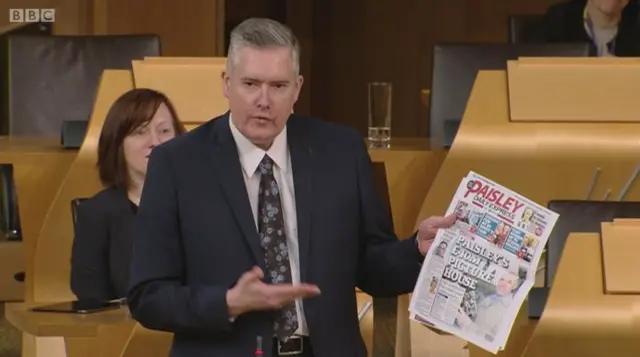
The SNP MSP highlights the newspaper in his own constituency the Paisley Daily Express which, he says, brings "dispatches from the very centre of the universe".
He also stresses how local journalists often go from these titles to the national papers.
Johnston Press revealed plans to cut editorial jobs across its operations in the UK, in January.
The Edinburgh-based publisher announced the move in a memo to staff.
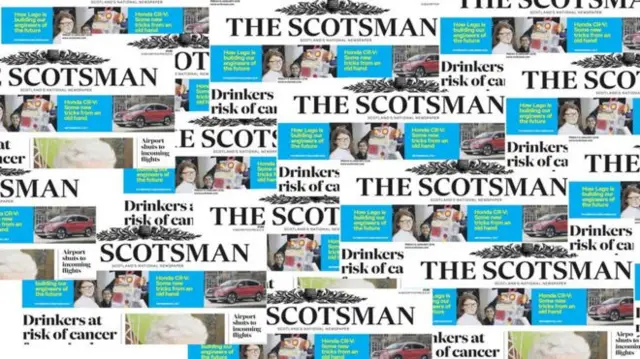
The number of planned redundancies was not specified but the National Union of Journalists said 32 posts in Scotland were at risk.
The move comes as the company, whose titles include The Scotsman and the Yorkshire Post, continues to cut costs following a decline in revenue.
Mr Dey says the unique identity of titles is being diminished by common content and a reduction in local content.
The SNP MSP says these are tough times for the print media and Johnston Press are not alone in having to make cuts.
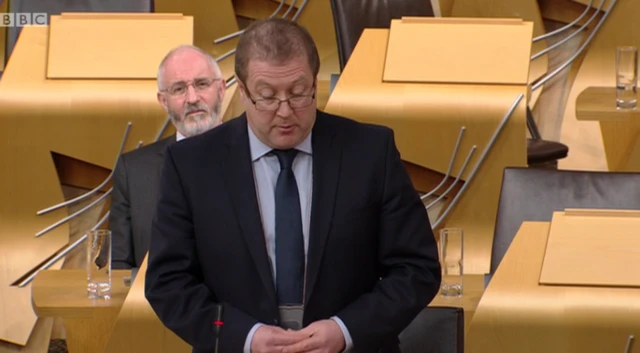
SNP MSP Graeme Dey
However he says the focus is on this group, due to the shrinking journalist numbers, increased workload and rock-bottom morale.
He says these papers must survive in some form as they train young journalists and provide an important service.
This debate is "not to give Johnston Press a kicking, this debate is about the big picture, the future of local papers that matter to communities".